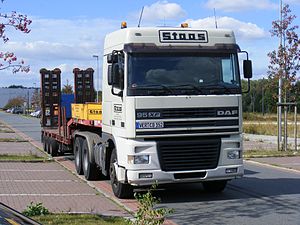There comes a time when it’s too late to tell people how you feel.
There will come a day when the person you mean to talk to won’t be there. Don’t wait for that day.
“There’s always tomorrow” isn’t always true.
The no-pants guide to spending, saving, and thriving in the real world.
I once worked for a company that was so confused that, not only did I not meet my last immediate supervisor for 6 months, but he didn’t know what I did or who I supported. He was my supervisor on paper for payroll and organizational purposes only.

Does your boss know what you do?
More recently, I was called into my current boss’s office to get scolded for low productivity since I don’t produce as much as the other programmers.
That’s not my favorite thing to do in the afternoon. I’d rather spend the afternoon playing Angry Birds improving our software.
In response, I spent the week logging my time. Before I left on Friday, I sent my boss an email that started out with:
When we spoke on Monday, you compared my productivity unfavorably to the other developers. I don’t think that’s a fair comparison as I do more categories of tasks than the others. I don’t think you realize how many additional responsibilities I’ve taken on over the years.
I continued from there with a summary of each day’s work last week. The short version is that, while being productive, I spend less than half of my time on my primary job function because I’ve slowly taken on a managerial role.
I’m on vacation this week, so it will be a few days before I find out if my email will make a difference.
Now, this scolding was my fault. I know I spend my day doing much more than just writing code. I’ve told my boss that before, but I’ve never made sure he understands the scale of the extra work, and I’ve never proven it with a detailed log.
This was poor personal marketing.
In the future, I have to make sure that I keep him in the loop with a summary of the extra work I do, like the training, product demos, sales calls, and estimates I’m involved in.
We’ll see how well that works.
How would you handle a situation like this? Daily emails? Whining? Kicking a garbage can across the room?

This is a guest post.
The goal of any business is to maximize profits while limiting expenses. Yet sometimes, a business may need a certain piece of equipment for a special project or other task. For example, a flatbed truck may be needed sometimes, but not enough times to justify spending the money to buy one. When this is the case, renting the truck becomes the smart option.
Renting a flatbed truck is perfect when working with heavy, oversized or irregular shaped cargo. Many times these trucks may only be needed for one or two days, perhaps only a few hours. When this is the case, renting a truck makes perfect sense. Any town and city has numerous rental truck options from which to choose, with the most popular brand being U-Haul. Flatbed trucks come in a variety of sizes, ranging from 8-22 feet in length. They can be rented for several days or only a couple of hours, depending on one’s needs. If necessary, the trucks can also be rented on a weekly or monthly basis.
A truck hire can also be very cost-effective for a business. Buying a flatbed truck can cost a business $40,000-$50,000 or possibly more, depending on the size of the truck. As with any new vehicle purchase, as soon as it’s driven off the dealer’s lot it begins to depreciate, therefore giving a business owner an investment whose value is less and less as time goes by. By renting a truck only when necessary, it saves a business substantially in terms of making a capital investment. Rental prices vary among different businesses, with most averaging $50-$100 per day depending on the truck that’s rented. Generally, the bigger the truck the more it costs to rent. There are usually no hidden charges or fees associated with renting trucks, so long as they are returned on time, in good condition and with the same amount of fuel they had when they left the rental lot. Also, the person who rents the truck is not the only person allowed to drive it. Most rental places allow up to three other people to be added to the driver’s list for an additional fee, often averaging around $10.
Most truck rental places allow reservations to be made online, and payments can be made with credit cards. Reserving online and paying with a credit card allows a business to take advantage of discounts, for most businesses will offer discounts for reserving online. Those who drive flatbed trucks only need to be at least 18 years old with a valid driver’s license, and the trucks do not require any special licenses to operate.
Many companies also provide 24/7 roadside assistance for renters, so if the truck breaks down while being used it can be picked up and replaced at no charge. With all these benefits, it makes far more sense for a business to rent a truck for its occasional needs rather than purchase one for a task now and then.

In an effort to make sure that both of my readers can’t possibly miss the things I think are important, I’m going to start doing a weekly roundup of the best of the internet. Judged solely, and arbitrarily, by me.
On topic:
These, naturally, are the posts that fit the theme of this site.
How To Check Your Federal IRS Tax Refund Status. When I checked a couple of days ago, they were about 2 weeks out.
TurboTax has screwed up the property tax refund form for Minnesota. Thankfully, I haven’t filed this, yet, but I did verify the problem.
Where do you want to be in 5 years? Start taking those steps, now, or you will never get there. Find something, no matter how small, and do it.
Deficit Neutrality doesn’t count, if a massive initial purchase is offset by future intentions to cut spending.
Off topic:
This is just some of the random crap I think is worth sharing.
If you’re going to argue on the internet, make sure you have your sources right. Primary sources are better than secondary.
Bring back dueling to ensure good manners.
Here’s a guide to saving water-damaged books.
I am a shameless geek and reformed DnD player, so this room was exciting to see.